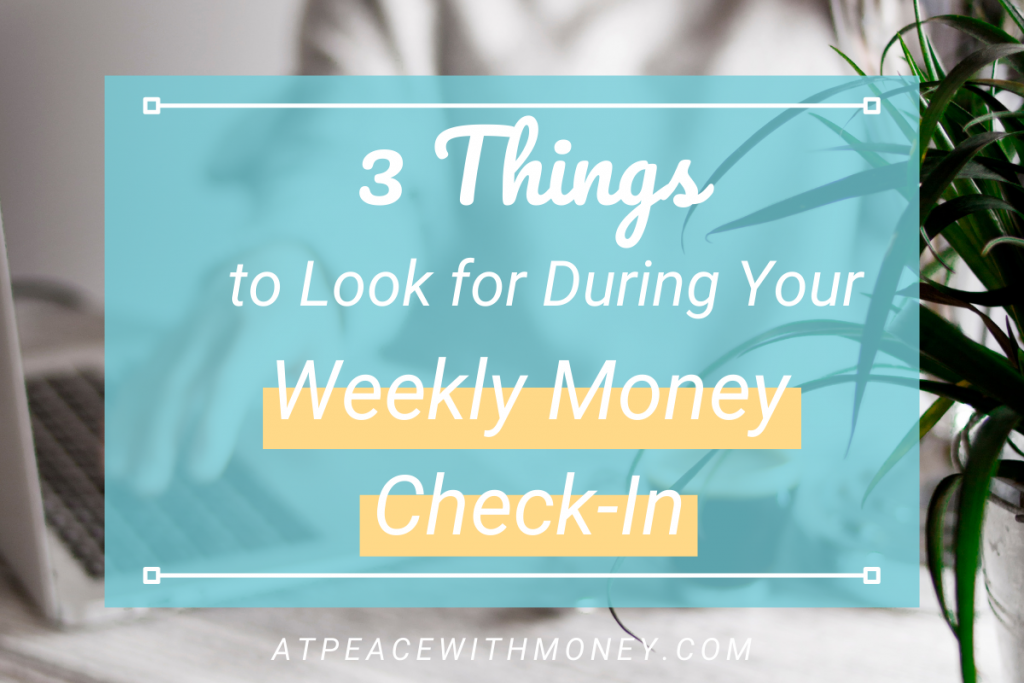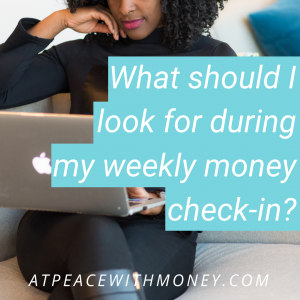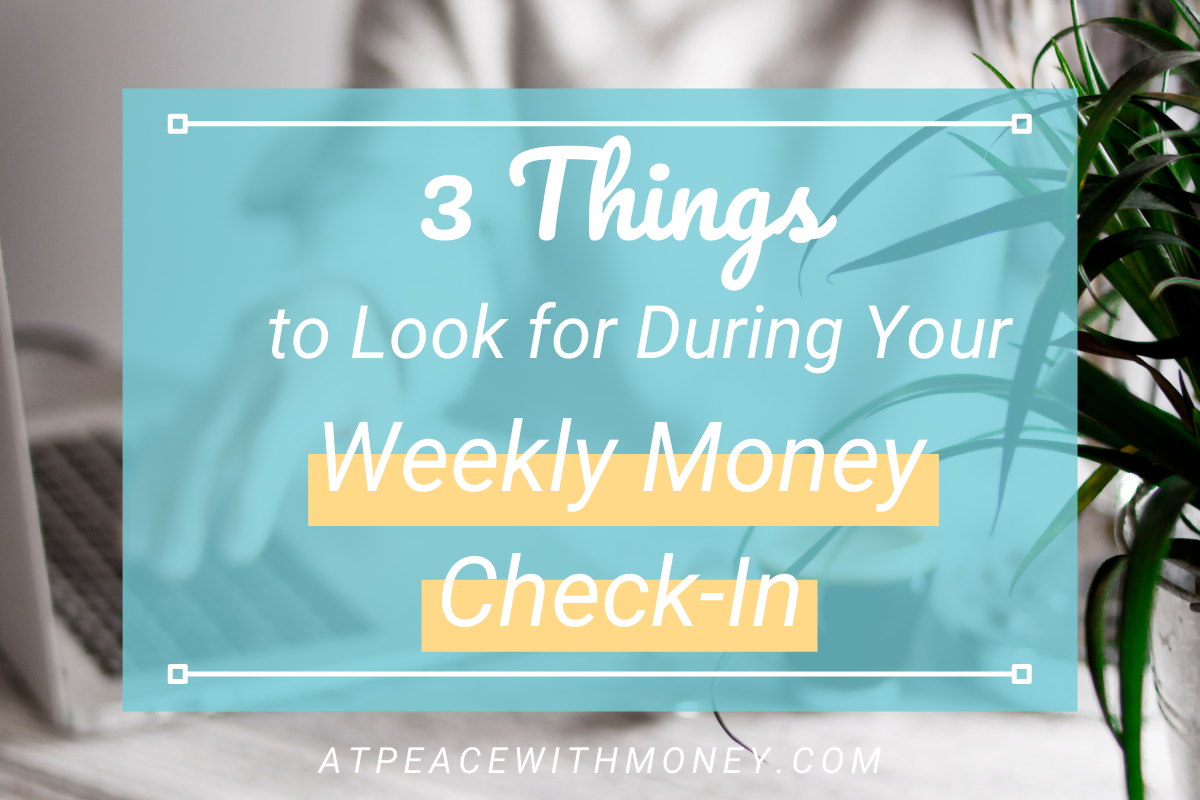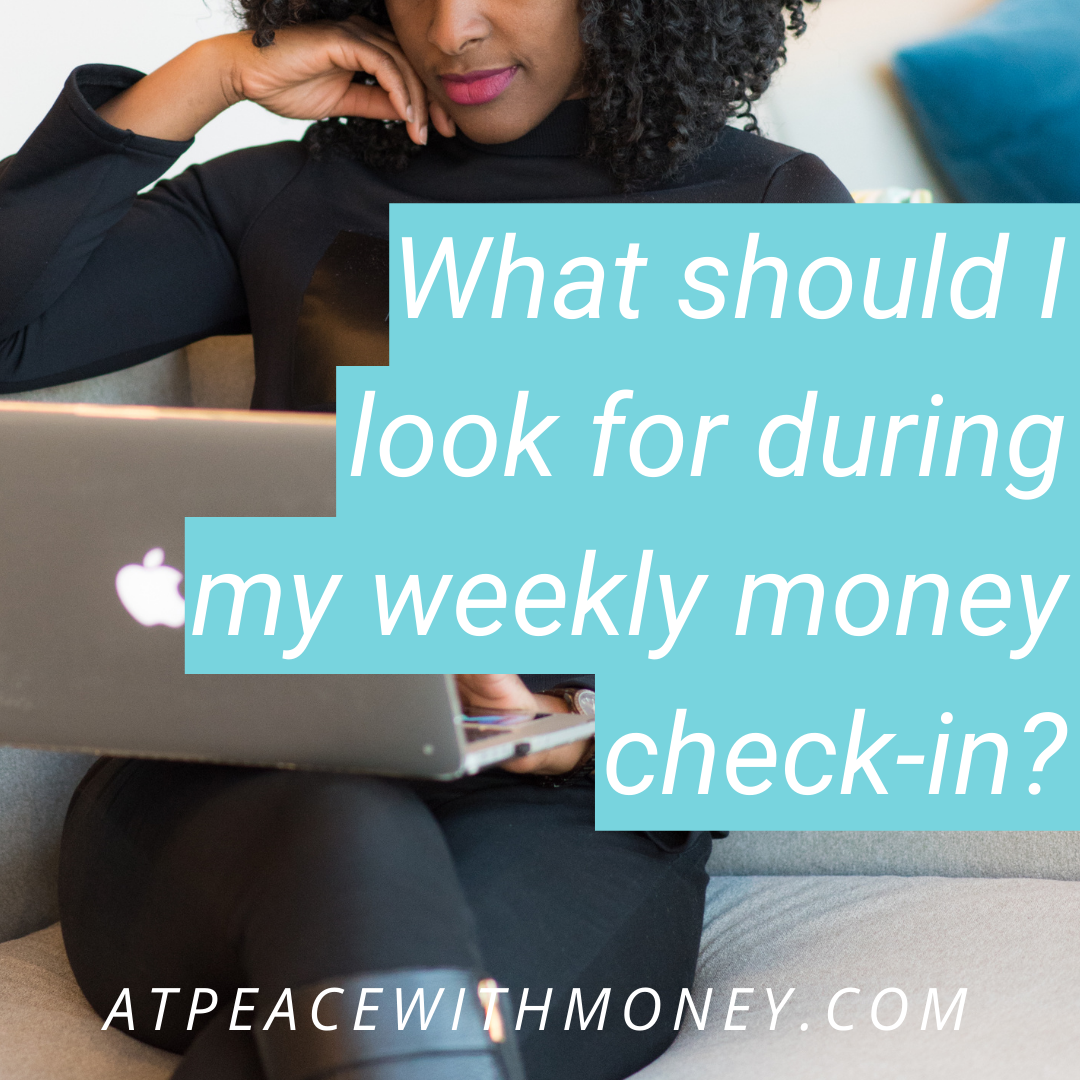3 Things to Look For During Your Weekly Money Check-In

One of the best ways to feel better about your money? It’s to check in with it regularly. In my most recent episode of Financial Self Care Friday, I shared how paying attention to our money, rather than ignoring or avoiding it, helps reduce anxiety and fear. In my e-Book, 9 Secrets to Financial Self Care, I’ve shared the importance of weekly “money time”– time where you sit down and check in with your finances.
Now that we’re clear on how important a weekly money check-in is, what do you actually want to look for when you’re doing it? Here are my top 3 suggestions. You can start with these whether you’re checking in on your personal or business finances.
Review Expenses
First off, review your recent expenses that have unfolded since your last money check-in. You want to make sure that everything looks familiar. Watch out for any surprise fees or other charges. This is a good way to catch subscriptions you need to terminate, identity theft, or other concerns.
It’s also good to make sure your expenses are aligned with your spending plan for the month. You might notice your expenses are a little bit over, or a little bit under. That’s important information that can help you make financial decisions the rest of the month.
Look Forward
Next up, look forward to big expenses coming up. Examples of regularly occurring (and often large) expenses include mortgage/rent or credit card payments. There are also periodic expenses, or expenses that occur less than monthly, but are still expected, such as car maintenance, medical bills, etc. Look ahead for the next month and see when these expenses are coming up. Move cash around to different accounts as needed so that you’ll be able to pay when the time comes.

Quick tip: If you haven’t yet automated your bill payments, set aside some time during your weekly money check-in to do that! As long as you feel confident about having money available for auto-pay, this can be a great option to stay organized and avoid late fees.
If you discover at this stage that you have more than enough cash on hand, take some time to consider what to do with it. For example, this is a great opportunity to donate some money or top up a savings account.
Clear Your IOU’s
This last step is particularly important for business finance weekly check-ins, but can also apply to personal finances. Make sure everyone who owes you money has paid their invoices. If not, send a reminder out! This may seem obvious, but sending invoices and reminders regularly is key to keeping a healthy cash flow in your business. Many business owners don’t get to it as regularly as they’d like. By establishing this step as part of your weekly money check-in, you can make sure you’re getting paid more quickly.
Sending a reminder to anyone who owes you money is also a good weekly practice for personal finance check-ins. During this step you can also consider what other opportunities you have to generate some funds. This can be particularly helpful if you noticed during the second step that you’ll need some more cash on hand soon.
If you liked this article, you’ll probably like my free e-Book, 9 Secrets to Financial Self Care. I talk more about creating regular “money time” and how to develop other good financial habits as part of a self care routine. Click here to download.



